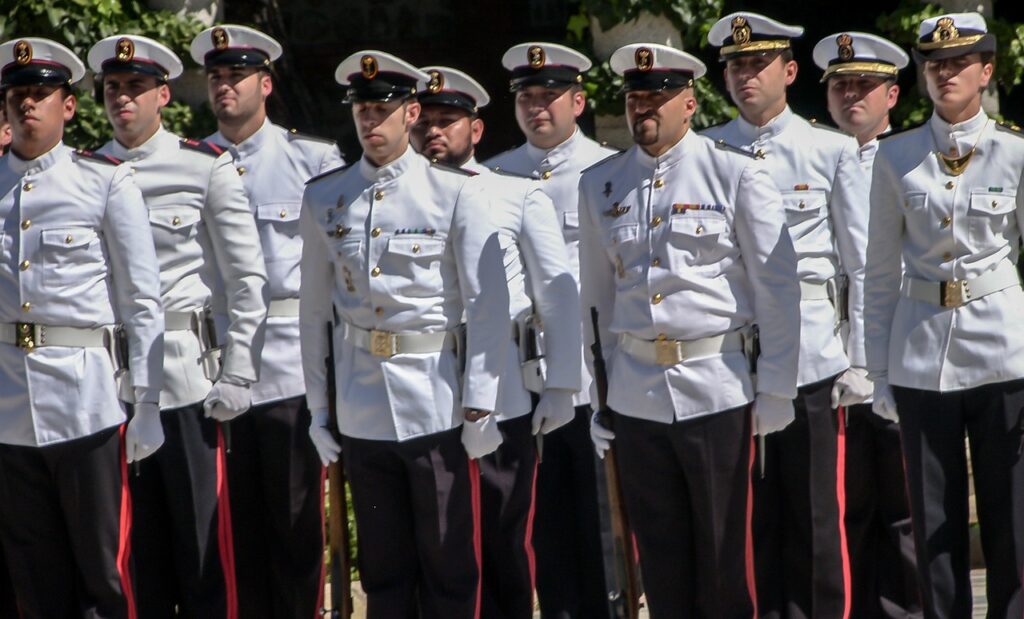When you think of first responders, it’s often law enforcement, firefighters, and EMS, but we’d like to acknowledge another much larger group: our military.
March is home to many military celebrations: Army Enlisted Medical Corp Anniversary (1st), \US Navy Reserve Birthday (3rd), Navy Seabees Birthday (5th), American Legion Birthday (15th), and National Medal of Honor Day (25th)… just to name a few.
We’re shifting the focus from our local heroes to our men and women who support us near and far, our military. The biggest challenge our military men and women face is what most look forward to, and that is homecoming.
Homecoming
You’ve seen tear-jerking videos of military parents, sons, daughters, and spouses coming home to surprise their loved ones. It’s a beautiful reunion and shared across multiple social platforms.
What you don’t see is the day after. You don’t see that same man or woman trying to get a job, dealing with flashbacks, or trying to find a routine back in the States. You don’t see domestic struggles, family disputes, or isolation. Once that touching reunion is done, the cameras are off and the real battle begins. Imagine how it is for those who don’t even get the touching reunion.
Military homecoming is harder than it seems, but we want to open doors that meet those challenges head-on. Let’s dive into what those challenges are and how to face them.
Challenges
When a military man or woman comes home, several challenges exist. It’s good to be on home soil, but the conflict catches up.
Here are some common challenges faced and ideas on how to handle them.
Here Not There
No matter the outfit, military groups have their routine and protocols. From early wake-ups to weapons cleaning, routines are how they survive. But here you are among civilians. It’s just different.
The best way to adjust to this area of change is to adopt new routines and structures. Keep what you can, such as wake-up time or wear you keep your shoes, but adopt new routines to help you adjust to civilian life. New routines might be getting the kids on the bus or making dinner. It could also be going for a jog or exercising.
Talk to your family and those who know you to find a routine that’s right for you. You’re no longer cleaning your weapon and doing patrols, but you still have a purpose and can find it through new routines, new habits, and new jobs.
Reintegration
As you reintegrate into a State-side home life, you’ll likely pick up a job, go grocery shopping, or need to drive places. It’s quite different than overseas military operations so it may take more adjustment for some than others. Realize that and allow yourself space to heal and adjust.
Maybe you can go back to an old job or maybe you land a job with a military group on home soil. For some, they need to find a completely new job and the task can be daunting. There are key stages to reintegration and following best practices can help make a smooth transition. You can also follow these 9 Tips for Reintegration.
Perhaps the most important tip for reintegration though is simply forgiving yourself. It’s not an easy process and there will be ups and downs, so go easy and focus on the positive as you navigate these challenges.
PTSI
No matter how hard a person tries, the war tends to come home too. No traumatic events can be left overseas easily. They’re ingrained in a person’s mind, settling in until something triggers recollection and they surface.
Be sure to have an anchor, a person to talk to about what’s happening as you readjust. Avoid excessive drinking or substance use as those can exacerbate symptoms and cloud judgment. Keep a journal of any symptoms so you can share patterns and concerns easily. Don’t fall into the I’m fine lie but have someone to confide in who supports you. If you find yourself having major episodes of flashbacks, blackouts, nightmares, or lashing out, seek professional help immediately. You can call the Veteran’s Crisis Line by calling 988 and pressing 1, or text 838255 to chat online.
Support
Other support lines are here for you. Here’s a quick list to get you the help you need.
- Military One Source – from military members to family members, common challenges and crises, this source covers everything military
- Veteran’s Crisis Line – Dial 988 and press 1 to reach specific support for military service members
- Military Relief Organizations – supplying financial aid to members through Army Emergency Relief, Navy-Marine Corps Relief Society, Air Force Aid Society, and Coast Guard Mutual Assistance.
- National Resource Directory – The NRD is a database of resources supporting recovery, rehabilitation, and reintegration.
- The Department of Defense’s Casualty Assistance Program – Assisting families in finding support, understanding benefits, and getting assistance after a death, illness, or injury of a family member in the military.
Facing Forward
We’re grateful for our military men and women and happy to have them come home. Homecoming shouldn’t be a burden on anyone, especially those who served, so don’t delay in getting the support needed. When we meet our challenges head-on, we can overcome them more readily and work towards a better future facing forward. As always, if you need more assistance, please reach out.
